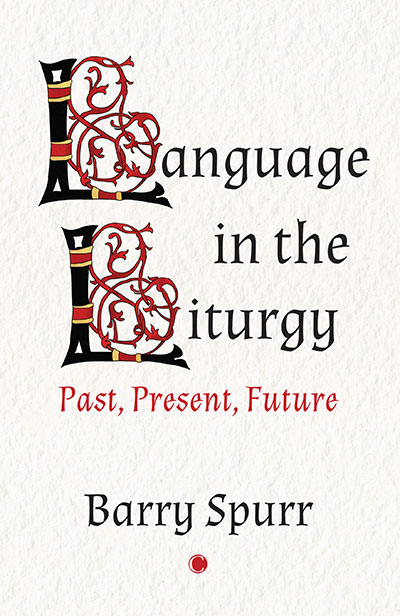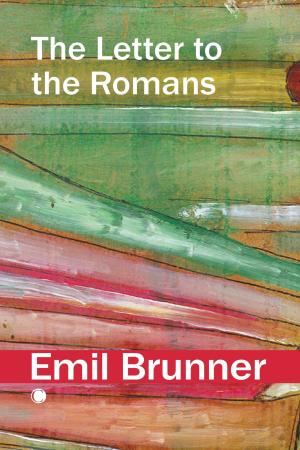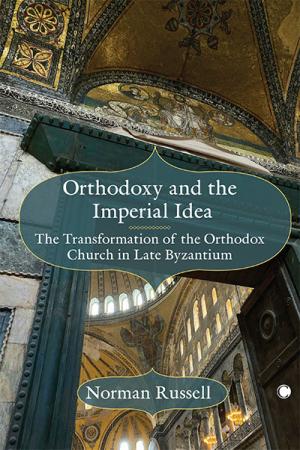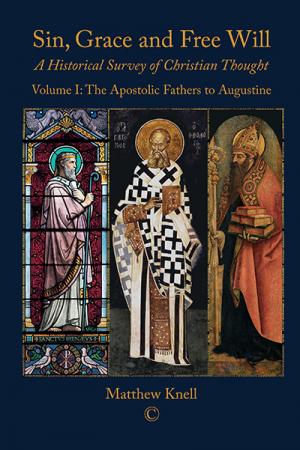Description
Language in the Liturgy is a historically-based, linguistically-focused account of the development of liturgical language in English in the Anglican and Roman Catholic Churches over the past half-century. It analyses issues of style and expression in a wide range of texts, setting this analysis within larger contexts of ecclesiastical and societal change since the 1970s. The Book of Common Prayer is taken as the benchmark of classical liturgical composition in English, not only because it was the first liturgy to be composed in the language, but also because of the universally acknowledged beauty of it. Professor Spurr makes a detailed comparative and analytical linguistic study of the Prayer Book and the liturgies composed in English in the modern idiom. He argues for a ‘renewal of the renewal’ by the restoration of an appropriate solemnity and sacredness of linguistic expression, as exemplified in the traditional Prayer Book rites. The book also includes chapters on the role of music and of silence in worship. This stimulating study will be of interest to all concerned about the future direction of liturgies in English in the Anglican and Roman Catholic Churches.
About the Author
Barry Spurr was a member of the English Department at Sydney University for forty years, and was Australia’s first Professor of Poetry. He has published extensively on Renaissance and Modernist poetry, religious literature and liturgical language. His internationally-acclaimed study of T.S. Eliot’s Christianity, Anglo-Catholic in Religion, is the standard account of its subject. Professor Spurr is currently Literary Editor of Quadrant.
Contents
Acknowledgements
Introduction
1 The Language of Liturgy
2 The Book of Common Prayer
3 Anglican Liturgy Today
4 Roman Catholic Liturgy Today
5 Music in Liturgy
6 Feminisation and Infantilisation of Liturgy
7 Silence and Stillness
Conclusion
Bibliography
Index
Endorsements and Reviews
This book encourages Anglicans and Roman Catholics alike to trust in the words of liturgies which have stood the test of time, and to invest themselves in language which has been purified in the fire of faithful praying. The linguistic richness and semantic density of religious language is an icon of faith itself; and Barry Spurr has produced a passionate apologia for the living stones of language which, by staying still instead of rolling, have gathered layers of truth and power which newer, plainer words cannot rival. Dr Carolyn Hammond, Dean, Gonville & Caius College, Cambridge
As only a devoted reader of poetry can, Barry Spurr illuminates the many splendors of Cranmer’s prayer book and the “old rite” from which it draws; and, with the mordant thoroughness of a prosecuting lawyer, uncovers the blunders, confusions, evasions, infantilizations, and serial diminishments of over a century of liturgical “reform” in the Catholic and Anglican worlds. If you value liturgy, you will prize this book. Kevin Hart, Jo Rae Wright University Distinguished Professor at Duke Divinity School
Spurr has demonstrated past all gainsaying that the use of a “high language” in liturgy—which comprises not only speech but also music, vesture, regulated actions—is no mere aesthetic fancy but a constitutive element of identity, piety, catechesis, and fervor… Spurr’s razor-sharp critique and his animated apologia place us doubly in his debt. Dr Peter Kwasniewski, author of The Once and Future Roman Rite
Spurr’s book is directed both to members of a Roman Catholic Church that is threatened by a polarised clash between traditionalists and so-called progressives and to an Anglican Church which may well be on the way to extinction. But any church or denomination that takes liturgy seriously would profit from a careful perusal of this book.
Dr Louis Groarke in Quadrant, No. 613, Volume LXIX, number 1-2, January-February, 2025, pp. 97-100
…this book… should not be ignored…. Spurr provides a detailed and thought-provoking examination of the language of contemporary Church of England and Roman Catholic services, along with considerations of music and ritual…. there is no doubt that this book should be read by anyone concerned for our liturgy, and in particular those charged with creating it in worship…. Many other issues are raised in this welcome book. Not least among them is the challenge to awaken a renewed sense of reverence in our servicesRevd Dr Barry Orford, Emeritus Fellow, Pusey House, Oxford, New Directions, March 2025 (pp.26-7).
As this book contains many warnings, yet another – from this reviewer – may not go amiss. If you tune out opinions that challenge your own views, this provocative volume is not for you. It most decidedly is, however, for many of the secular and spiritually minded alike. If you are a lover of the English language and prize excellence in its usage, study it for the displays of fine writing it contains. A second audience will exist among those who see value in a strong community of faith and agree that, more than ever, people whose lives are roiled by social and political disruption are in need of one immutable thing – a conviction that will hold fast.Ken Haley, in InReview, April, 2025 (InDaily Queensland).
It seems there is a definite revival of interest in use of the BCP, and not only among older congregations, as a rootless and frightened
younger generation begins to look for firm historic faith foundations for living. That should concern those responsible for our worship, along with the many other issues
raised in this welcome book. Not least among them is the challenge to awaken a renewed sense of reverence in our services.Barry A. Orford in New Directions, pp. 26-27, March, 2025.
This remarkable book is full of pleasant surprises. Its title undersells it, for it achieves much more than it claims: it is in fact an elegant, scholarly and at times very witty study not only of the language of public worship, but of the current state of faith and practice in both the Roman Catholic and Anglican churches (…)I wouldn’t be at all surprised if some readers with no interest in religion take pleasure from literary analysis of a very high order.David Daintree in Literary Sympathy, News Weekly, 8 May, 2025.
A critique of modern liturgical writing in both the Roman Catholic Church and the Churches of the Anglican Communion…. Barry Spurr applies his considerable expertise in the fields of English language and poetics in-depth analysis… a detailed and polemically charged analysis of contemporary liturgical writing and experimental worship…. Reviewing the Roman liturgy, he judges the English phrasing of the new order of the mass to be flat and prosaic. Contemporary Anglican provision does not fare much better…. it was good to read a positive appraisal of the Times and Seasons services for Holy Week and Easter. So, not all contemporary liturgical writing is summarily dismissed as a disaster, but most of it is…. Spurr is correct to say that casting the language of worship in the vernacular is not opting for the conversational language of the street, not least because words of confession and praise of the divine need to carry a weight of meaning which stretches language to the limit…. Spurr reminds us that the language of worship needs to be poetic. Its images need to be arresting and cast in a way that is repetitive (though avoiding the sing-song rhyme of some new English translations of Latin prayers) and memorable…. Spurr is aware of the other “languages” of worship, not least posture, ritual gestures, music and song, and silence..The Revd Christopher Irvine, Canon Librarian and Director of Education at Canterbury Cathedral in Church Times, June, 2025 (online).
My review only touches on the riches of this book. Some of us who attend and love the traditional liturgies are not quite sure why we feel as moved and uplifted by our experience of them as we do; Barry Spurr’s work helps us to understand more fully the reasons for these feelings. For Catholics in particular, reading it would reassure traditional Catholics in the correctness of their convictions and encourage those who know only the modern liturgy to at least experience the wonder of the traditional Latin Mass.Christopher Coney in Fidelity Magazine, July, 2025, p. 35-36.
Spurr’s book is a worthy companion to other recent studies of litur-
gical language, (…), Spurr refrains from speculation, simply noting that the future “belongs to the young” (338). Given the persuasive case that he argues, accounting for the survival and persistence of traditional liturgical language, often against the odds, in its durable capacity to elevate and focus divine worship, that is perhaps a counsel of hope and some assurance that the Word can yet refresh the desert.Clinton Brand, University of St Thomas, Houston, Texas in Antiphon, 29.2 (2025): 191–193.
The title of the book, Language in the Liturgy: Past, Present, Future, sounds enticing, and Spurr – a formaer professor of English Literature and now poetry editor of Quadrant – is certainly well qualified to give an intriguing contribution to the ongoing debate.Bryan D. Spinks in Journal of Anglican Studies,p.1-4, July, 2025.
Many of Spurr’s readers will have considerable sympathy with his high valuation of ordered worship, a liturgy that can be memorised and internalised, and a particular kind of language that seemed exact for its purpose….There is corresponding attention to the pedestrian character of much contemporary liturgical composition…. what can helpfully be traced in Spurr’s work is the shift from a time when there were criteria by which to judge liturgical excellence – or at least reliable models to emulate – to an era in which there are no securely established norms of taste, style, or literary quality.Bridget Nichols, Lecturer in Anglicanism and Liturgy in the Church of Ireland Theological Institute, in SEARCH, A Church of Ireland Journal, 48.3, p. 227-229.





